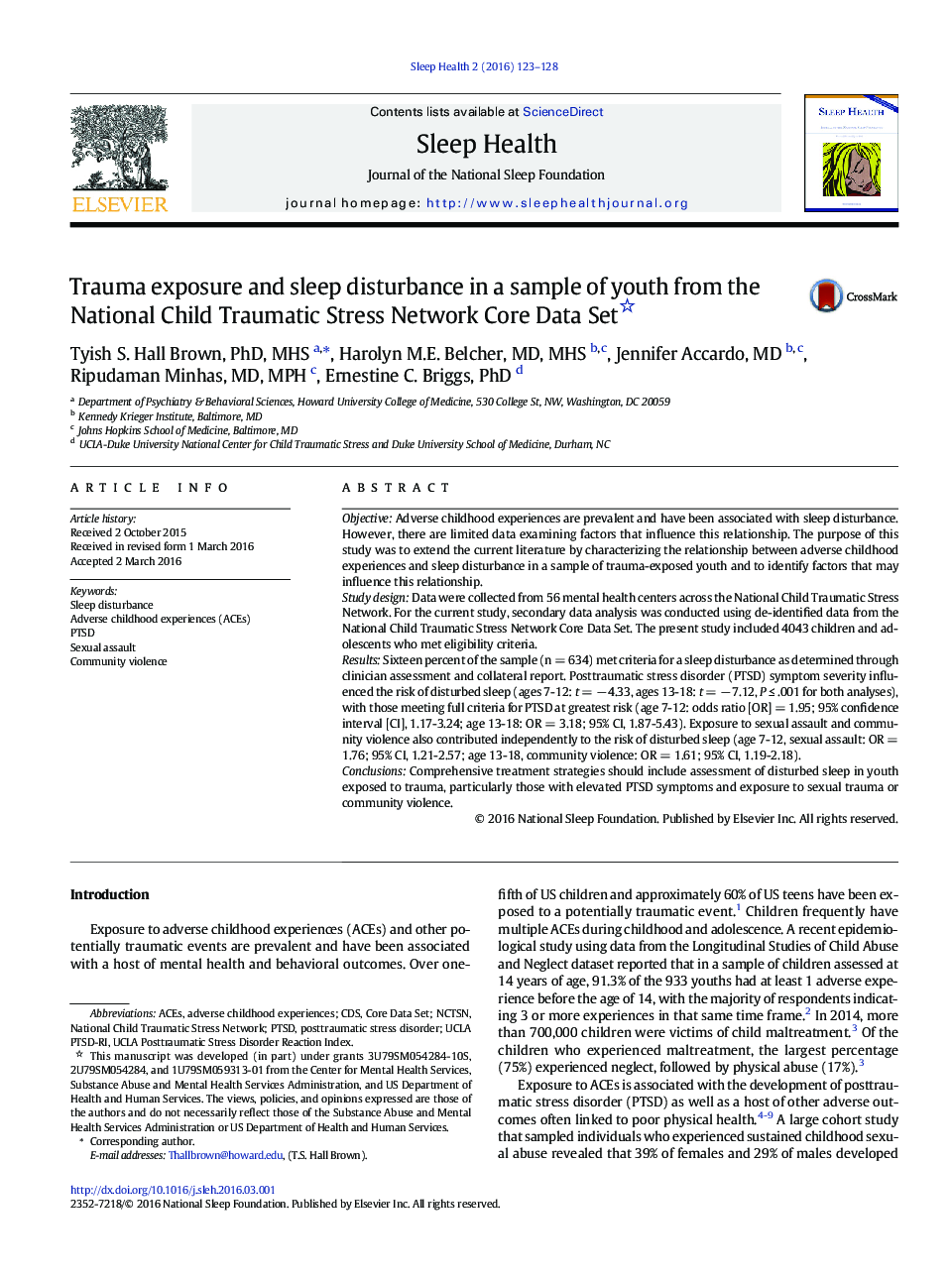| Article ID | Journal | Published Year | Pages | File Type |
|---|---|---|---|---|
| 916246 | Sleep Health | 2016 | 6 Pages |
ObjectiveAdverse childhood experiences are prevalent and have been associated with sleep disturbance. However, there are limited data examining factors that influence this relationship. The purpose of this study was to extend the current literature by characterizing the relationship between adverse childhood experiences and sleep disturbance in a sample of trauma-exposed youth and to identify factors that may influence this relationship.Study designData were collected from 56 mental health centers across the National Child Traumatic Stress Network. For the current study, secondary data analysis was conducted using de-identified data from the National Child Traumatic Stress Network Core Data Set. The present study included 4043 children and adolescents who met eligibility criteria.ResultsSixteen percent of the sample (n = 634) met criteria for a sleep disturbance as determined through clinician assessment and collateral report. Posttraumatic stress disorder (PTSD) symptom severity influenced the risk of disturbed sleep (ages 7-12: t = − 4.33, ages 13-18: t = − 7.12, P ≤ .001 for both analyses), with those meeting full criteria for PTSD at greatest risk (age 7-12: odds ratio [OR] = 1.95; 95% confidence interval [CI], 1.17-3.24; age 13-18: OR = 3.18; 95% CI, 1.87-5.43). Exposure to sexual assault and community violence also contributed independently to the risk of disturbed sleep (age 7-12, sexual assault: OR = 1.76; 95% CI, 1.21-2.57; age 13-18, community violence: OR = 1.61; 95% CI, 1.19-2.18).ConclusionsComprehensive treatment strategies should include assessment of disturbed sleep in youth exposed to trauma, particularly those with elevated PTSD symptoms and exposure to sexual trauma or community violence.
